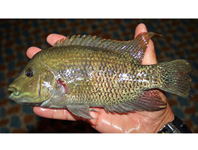Abstract
The collection of centipedes in the Natural History Museum (NHM) in London is one of the most taxonomically and geographically complete in the world. Type material includes many species described by William Leach, George Newport, and especially Reginald I. Pocock. The present paper provides a survey of previously unidentified centipedes in the collections in the NHM, and is focused on scolopendromorph specimens collected during expeditions to Africa between 1892 and 1967. It deals with material gathered in numerous regions, provinces and islands across the African continent, mainly by British naturalists. Species of the genera Alipes Imhoff, 1854, Asanada Meinert, 1886, Cormocephalus Newport, 1844, Cryptops Leach, 1815, Ethmostigmus Pocock, 1898, Otostigmus Porat, 1876, Rhysida Wood, 1862, Scolopendra Linnaeus, 1758 and Scolopocryptops Newport, 1844, were examined. A total of 32 species and subspecies are identified, one of which, is described as new: Otostigmus (Parotostigmus) coltellus n. sp., from São Tome, while many of them are new to the fauna of certain African regions/countries. The syntypes of Otostigmus (Parotostigmus) productus Karsch, 1888, include two species, one of which is O. (P.) coltellus; a lectotype is selected to stabilize the name. Cormocephalus westwoodi anceps and Rhysida lithobioides paucidens have been returned to specific rank.

